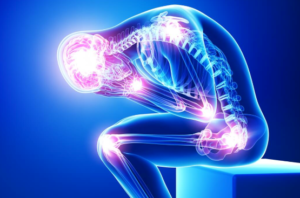Spine injuries can affect your daily life and overall well-being. Understanding these conditions and the specialists who treat them is a valuable step toward managing your health effectively. Here is more information on neurological surgeons, the services they offer, and how they can assist with spine injuries:
What Are Neurological Surgeons?
Neurological surgeons, or neurosurgeons, are medical doctors who specialize in the diagnosis and surgical treatment of disorders affecting the central and peripheral nervous system. This system includes the brain, spinal cord, and peripheral nerves. Their training involves extensive education in the complexities of the nervous system and surgical techniques.
What Services Do They Provide?
Neurological surgeons perform a variety of complex procedures to address neurological issues. For spinal conditions, they offer specific surgeries designed to relieve pain, restore function, and improve stability. These procedures are tailored to the individual patient’s condition.
Standard spinal surgeries include:
- Artificial Disc Replacement: This procedure involves replacing a degenerated spinal disc with an artificial one. It is designed to maintain motion in the spine.
- Microdiscectomy: A minimally invasive surgery to remove a portion of a herniated disc that is pressing on a nerve root.
- Spinal Fusion Surgery: This surgery joins two or more vertebrae together to form a single, solid bone. The goal is to eliminate motion between the vertebrae and reduce pain.
- Laminectomy, Laminotomy, and Foraminotomy: These are decompression surgeries. A laminectomy removes the lamina, a part of the vertebra. A laminotomy removes a smaller portion of the lamina, while a foraminotomy enlarges the foramen, the opening where nerve roots exit the spinal canal.
What Is a Spine Injury?
A spine injury refers to damage to the spinal cord or the structures surrounding it, such as the vertebrae, discs, and ligaments. These injuries range from mild strains to severe damage, resulting in loss of function and mobility. The location and severity of the injury determine the extent of its effects.
The spinal cord is a bundle of nerves that transmits signals between the brain and the rest of the body. When it is injured, this communication can be disrupted. This disruption may lead to changes in sensation, movement, and bodily functions below the level of the injury.
What Are the Causes and Symptoms?
Spine injuries can result from various events. Common causes include traumatic incidents like car accidents, falls, and sports injuries. Non-traumatic causes can include conditions like arthritis, infections, tumors, and disc degeneration.
The symptoms of a spine injury vary based on its location and severity. Some common symptoms include localized or radiating pain, numbness, tingling, or muscle weakness. In more severe cases, symptoms may involve loss of bladder or bowel control and paralysis.
How Can a Specialist Help?
A neurological surgeon helps by providing a comprehensive evaluation and a precise diagnosis. They use advanced imaging techniques like MRI and CT scans to assess the extent of the injury. Based on this assessment, they develop a treatment plan. The goal of surgical intervention is to stabilize the spine, decompress neural elements, and alleviate symptoms to improve the patient’s quality of life.
Manage Your Spine Injury
A spine injury requires careful management and a specialized approach. Neurological surgeons offer advanced surgical treatments for a variety of spinal conditions. By understanding the causes, symptoms, and available treatments, you can take an informed approach to your care.
If you are experiencing symptoms of a spine injury, consulting with a specialist can provide a path forward. A neurological surgeon will help you understand your condition and determine the most appropriate treatment options for your specific needs. Contact a healthcare provider to discuss your options.















